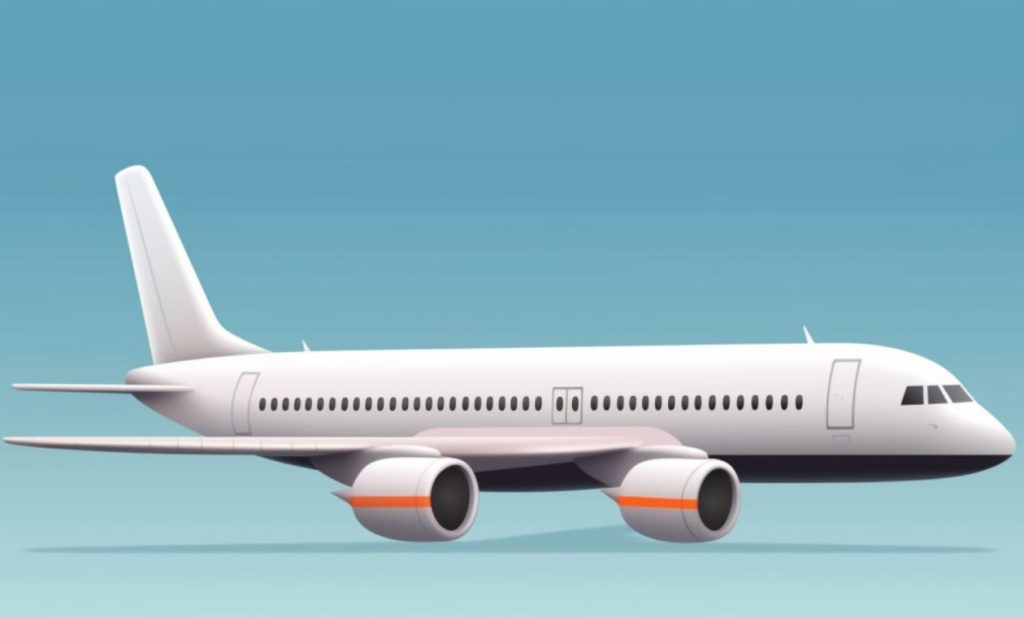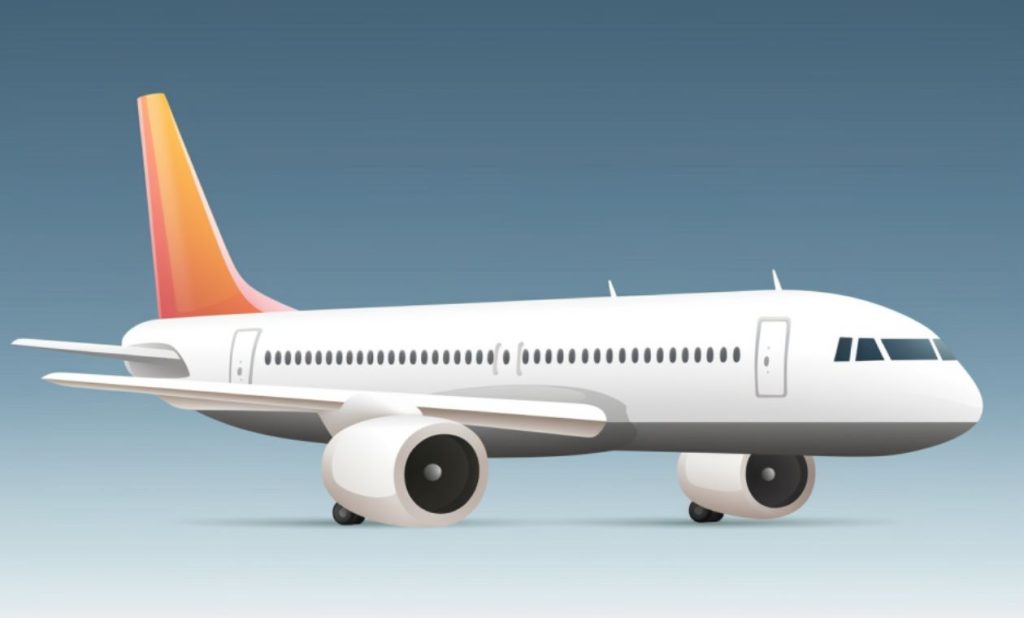
In the vast expanse of the aerospace industry, Airbus SE emerges as a visionary protagonist, shaping the narrative of modern flight. Established by a cadre of pioneers driven by a shared dream, Airbus SE has evolved into a powerhouse of innovation and engineering excellence. This documentary-style exploration unveils the saga of Airbus SE, delving into its profound impact on global aviation.
Airbus SE, headquartered in Toulouse, France, is a beacon of aeronautical ingenuity. As a major player in the aerospace sector, Airbus SE has not only redefined the contours of commercial flight but has also become synonymous with cutting-edge technology and forward-thinking design. With a fleet that graces the skies of every continent, Airbus SE’s influence extends far beyond manufacturing aircraft; it shapes the very experience of air travel.
In the intricate dance of aircraft design, technological prowess, and global partnerships, Airbus SE takes center stage. As we embark on this documentary journey, the goal is to unravel the layers of Airbus SE’s narrative, capturing the essence of its genesis, its role in the evolution of aviation, and the intrinsic importance it holds in the aerospace tapestry. Fasten your seatbelts as we navigate the skies of history, innovation, and the boundless possibilities scripted by Airbus SE. This is more than a company profile; it’s an odyssey through the clouds, guided by the pioneering spirit of Airbus SE.
Founding Visionaries
The genesis of Airbus SE finds its roots in the visionary aspirations of its founding architects, a cohort of trailblazers who dared to reimagine the future of aviation. Among them were industry luminaries like Henri Ziegler, Roger Béteille, and Franz Josef Strauss, whose collective vision would lay the foundation for Airbus SE’s extraordinary journey.
Henri Ziegler, an aeronautical engineer, played a pivotal role in conceptualizing the idea of a consortium that could challenge the dominance of American aviation giants. Roger Béteille, an aircraft designer, brought his expertise to the table, contributing to the intricate artistry of Airbus SE’s aircraft. The political acumen of Franz Josef Strauss, a German statesman, added a strategic dimension to the consortium’s formation.
The genesis of Airbus SE in 1970 marked a paradigm shift in the aerospace industry. The company was founded as a consortium of European nations, transcending national boundaries to create a collaborative force. The early goals were ambitious yet clear – to break the duopoly in commercial aircraft manufacturing and establish a European contender on the global stage.
Milestones leading to the establishment of Airbus SE included the maiden flight of the Airbus A300 in 1972, a historic moment that signaled the birth of a new era. The successful entry into service of the A300 with launch customer Air France validated the founders’ vision and paved the way for Airbus SE to become a major player in the aviation landscape.
This chapter in Airbus SE’s narrative is one of audacity, collaboration, and a determination to challenge the status quo. The founding visionaries set in motion a legacy that continues to soar, shaping the skies and embodying the spirit of innovation that defines Airbus SE to this day.
Evolution of Aircraft Manufacturing:
Overview of Airbus SE’s Contributions to Commercial Aviation
Airbus SE’s ascent in the realm of commercial aviation is a narrative of groundbreaking contributions that have reshaped the dynamics of flight. Since its inception, Airbus SE has stood as a beacon of innovation, challenging conventions and pushing the boundaries of what is achievable in the skies. As a key player in the aerospace industry, Airbus SE has consistently introduced cutting-edge technologies and design philosophies that have elevated the passenger experience and set new benchmarks for the entire aviation sector.
Advancements in Aerospace Technology
At the heart of Airbus SE’s influence is a commitment to advancing aerospace technology. The company’s emphasis on research and development has led to the integration of state-of-the-art materials, aerodynamics, and avionics systems in its aircraft. From pioneering fly-by-wire technology to implementing fuel-efficient engines, Airbus SE has continuously embraced technological advancements that enhance safety, efficiency, and environmental sustainability.
Key Aircraft Models and Their Impact
The Airbus SE fleet stands as a testament to a legacy of innovation and excellence. The introduction of the Airbus A300 marked the first step in challenging the duopoly in commercial aircraft manufacturing. Subsequent models, such as the A320, A330, A340, A380, and the more recent A350 XWB, have not only redefined air travel but have also set records for fuel efficiency, passenger capacity, and range.
The A320 family, with its innovative fly-by-wire technology and fuel-efficient design, revolutionized single-aisle aircraft. The A380, the world’s largest passenger aircraft, ushered in a new era of long-haul travel. The A350 XWB, with its advanced aerodynamics and composite materials, continues to shape the future of wide-body aircraft.
As Airbus SE continues to innovate, its contributions to commercial aviation remain at the forefront of the industry, reaffirming its role as a pioneer in crafting the skies with unparalleled designs and technological prowess.
Global Aerospace Impact:
The footprint of Airbus SE extends far beyond the runways; it encompasses a global canvas where its aircraft soar across continents. As a prominent player in the aerospace industry, Airbus SE has become synonymous with international air travel, connecting people and cultures across the globe. The company’s influence is not confined to European skies but resonates on a worldwide scale, with a diverse fleet that serves airlines and passengers across every corner of the Earth.
Central to Airbus SE’s global impact is its commitment to collaboration. The company operates in a consortium structure, bringing together expertise and resources from multiple European nations. This collaborative model has not only fostered technological innovation but has also solidified Airbus SE’s position as a key player in the international aerospace community.
Furthermore, Airbus SE engages in strategic collaborations and partnerships with airlines, suppliers, and industry stakeholders worldwide. These partnerships facilitate the exchange of knowledge, technology, and best practices, contributing to the continuous evolution of Airbus SE’s aircraft and solutions. The global network of collaborations reinforces Airbus SE’s presence and influence in the ever-evolving aerospace landscape.
Beyond the technical realms of aviation, Airbus SE leaves an indelible mark on the cultural and economic landscapes of the regions it serves. The introduction of Airbus aircraft into international markets has not only transformed air travel but has also become emblematic of progress and connectivity. The Airbus A380, for instance, has redefined the concept of long-haul travel, connecting distant cultures and fostering a sense of global unity.
Economically, Airbus SE is a significant contributor to the prosperity of regions where it operates. The manufacturing, assembly, and servicing of Airbus aircraft generate employment, stimulate local economies, and contribute to the development of a skilled workforce. Airbus SE’s presence is not just about aircraft; it’s about creating a ripple effect that positively impacts communities and economies on a global scale.
In essence, Airbus SE’s reach across continents goes beyond the physical dimensions of its aircraft; it encompasses the cultural, economic, and collaborative threads that weave together a tapestry of international connectivity and progress.
Technological Advancements: Innovations Shaping the Future of Flight

Exploration of Airbus SE’s Cutting-edge Technologies
At the heart of Airbus SE’s legacy is a commitment to pioneering technologies that propel the aviation industry into the future. The company’s dedication to innovation is evident in its exploration of cutting-edge technologies that not only enhance the efficiency and safety of air travel but also redefine the very experience of flight.
One such groundbreaking technology is the implementation of fly-by-wire systems in Airbus aircraft. Introduced with the A320 in the late 1980s, fly-by-wire marked a paradigm shift in aircraft control, replacing traditional mechanical systems with electronic controls. This innovation has since become a standard feature in Airbus SE’s portfolio, contributing to enhanced maneuverability, fuel efficiency, and overall safety.
Integration of Digital Advancements in Aircraft Design
Airbus SE continues to be at the forefront of the digital revolution in aircraft design. The integration of digital advancements spans various aspects of aircraft manufacturing, from design and engineering to production and maintenance. The use of digital twins, virtual simulations, and advanced modeling techniques allows Airbus SE to refine and optimize every facet of its aircraft before a single physical component is manufactured.
Digital advancements also extend to the cabin experience, with Airbus SE incorporating state-of-the-art entertainment and connectivity solutions. Passengers on Airbus aircraft can now enjoy a seamless and technologically immersive journey, thanks to in-flight entertainment systems, high-speed connectivity, and personalized services.
Continuous Improvements and Updates to the Fleet
Airbus SE’s commitment to technological leadership is underscored by its continuous efforts to improve and update its fleet. The introduction of the A350 XWB (Extra Wide Body) exemplifies Airbus SE’s dedication to incorporating the latest advancements. The A350 XWB features advanced aerodynamics, lightweight materials, and fuel-efficient engines, setting new standards for long-haul travel.
Furthermore, Airbus SE actively pursues research and development initiatives to stay ahead of the technological curve. Investments in alternative propulsion systems, sustainable aviation fuels, and next-generation materials highlight Airbus SE’s focus on shaping a more environmentally friendly and technologically advanced future for aviation.
In essence, Airbus SE’s exploration of cutting-edge technologies, integration of digital advancements, and continuous fleet improvements not only elevate the company’s position in the aerospace industry but also contribute to shaping the trajectory of flight in the 21st century.
Leadership Insights: Guiding the Skies with Visionary Leadership
Profiles of Key Leaders at Airbus SE
At the helm of Airbus SE, a cadre of visionary leaders has steered the company through the ever-evolving skies of the aerospace industry. Each leader brings a unique set of skills, experiences, and insights, collectively contributing to Airbus SE’s success as a global aviation giant.
- Guillaume Faury (current CEO): Guillaume Faury, as the current Chief Executive Officer of Airbus SE, has played a pivotal role in navigating the company through dynamic industry landscapes. With a background in aerospace engineering and a wealth of experience within Airbus, Faury brings a comprehensive understanding of the challenges and opportunities inherent in the aviation sector.
- Tom Enders (former CEO): Tom Enders, former CEO of Airbus SE, left an indelible mark on the company’s trajectory. Under his leadership, Airbus SE embraced innovation and globalization, fostering a culture of collaboration and adaptability. Enders’ tenure was marked by a commitment to sustainability and advancements in aircraft technology.
- Jean-Brice Dumont (Executive Vice President – Engineering): Jean-Brice Dumont, as the Executive Vice President for Engineering at Airbus SE, has been instrumental in driving technological advancements within the company. His leadership in the engineering domain has contributed to the continuous evolution of Airbus SE’s aircraft design and performance.
- Leadership Philosophy and Strategies: The leadership philosophy at Airbus SE is grounded in a commitment to excellence, innovation, and sustainable growth. Leaders emphasize a collaborative approach, leveraging the collective expertise of a diverse and international workforce. The philosophy revolves around fostering a culture that encourages creativity, embraces challenges, and values continuous improvement.
Strategically, Airbus SE’s leadership is dedicated to maintaining a competitive edge in the aerospace industry. This involves strategic investments in research and development, partnerships with key stakeholders, and a forward-looking approach to address emerging trends in aviation. The company’s strategy is not only about delivering cutting-edge aircraft but also about ensuring the long-term sustainability and success of Airbus SE in a rapidly changing world.
Insights into Airbus SE’s Corporate Governance
Airbus SE’s corporate governance framework is designed to ensure transparency, accountability, and ethical business practices. The company operates with a Board of Directors responsible for strategic decision-making and oversight. The governance structure emphasizes the importance of compliance with legal and regulatory standards, risk management, and sustainability.
The Airbus SE leadership places a strong emphasis on social responsibility, aligning corporate strategies with environmental and societal goals. This commitment is reflected in the company’s initiatives for sustainability, diversity and inclusion, and community engagement.
In essence, Airbus SE’s leadership insights reveal a commitment to shaping the future of aviation through visionary leadership, a strategic approach to challenges, and a steadfast dedication to ethical and sustainable business practices. These leaders guide Airbus SE not only through the complexities of the aerospace industry but also toward a future of continued innovation and global impact.
Challenges and Triumphs: Navigating the Turbulence of the Aerospace Industry
Examination of Challenges Faced by Airbus SE
Airbus SE, like any industry leader, has faced a spectrum of challenges throughout its journey in the aerospace sector. These challenges encompass a range of factors, from economic uncertainties and geopolitical complexities to technological disruptions and shifts in market demands.
- Global Economic Fluctuations: Airbus SE operates in an industry highly sensitive to global economic fluctuations. Economic recessions, currency fluctuations, and financial crises have presented formidable challenges. The demand for new aircraft is intricately linked to the financial health of airlines, and economic downturns can impact their capacity to invest in fleet upgrades.
- Supply Chain Disruptions: The aerospace industry relies on intricate and globalized supply chains. Disruptions, whether caused by natural disasters, geopolitical events, or unforeseen crises (as experienced with the COVID-19 pandemic), can reverberate across the industry. These disruptions pose challenges in terms of production delays, increased costs, and the need for robust contingency plans.
- Regulatory Compliance and Certification: The stringent regulatory landscape of the aerospace industry poses ongoing challenges. Compliance with safety standards, environmental regulations, and evolving certification requirements demands continuous adaptation. Delays in obtaining regulatory approvals can affect the timeline for new aircraft launches and impact overall business strategies.
Strategies Employed to Overcome Obstacles
Airbus SE’s resilience in the face of challenges is underscored by strategic responses and adaptive measures.
- Diversification of Product Portfolio: To mitigate the impact of economic fluctuations, Airbus SE has strategically diversified its product portfolio. Offering a range of aircraft sizes and types allows the company to navigate market shifts and cater to diverse customer needs.
- Global Collaboration and Partnerships: In response to supply chain disruptions and geopolitical challenges, Airbus SE has fostered global collaborations and partnerships. Establishing resilient supplier networks, engaging in joint ventures, and forming alliances with key industry players enhance the company’s ability to navigate uncertainties.
- Embracing Technological Innovation: Airbus SE consistently invests in technological innovation to address industry challenges. The development of fuel-efficient aircraft, the integration of digital technologies, and a focus on sustainable aviation solutions are examples of Airbus SE’s commitment to staying ahead of technological disruptions.
Impact on the Company’s Resilience and Adaptability
The challenges faced by Airbus SE have served as catalysts for innovation, reinforcing the company’s resilience and adaptability. Each obstacle has spurred introspection, leading to improvements in operational efficiency, risk management, and strategic planning.
The ability to navigate turbulence has become a hallmark of Airbus SE’s corporate DNA. The company’s proactive stance, coupled with a culture that embraces change, positions Airbus SE not just as a survivor of challenges but as an industry leader capable of turning adversity into opportunities for growth and improvement.
Environmental Sustainability: Airbus SE’s Commitment to a Greener Future
Initiatives for Sustainability and Eco-Friendly Practices
Airbus SE stands at the forefront of the aerospace industry’s commitment to environmental sustainability. The company has undertaken a series of initiatives and embraced eco-friendly practices to minimize its ecological footprint and contribute to a greener future.
- Sustainable Aviation Fuels (SAFs): One of Airbus SE’s key initiatives is the promotion and integration of sustainable aviation fuels (SAFs). SAFs are biofuels that significantly reduce greenhouse gas emissions compared to traditional aviation fuels. Airbus SE actively collaborates with partners to advance the development, certification, and adoption of SAFs across its aircraft fleet.
- Electrification and Hybridization: In line with the global push toward electrification, Airbus SE has been exploring and investing in electric and hybrid propulsion technologies. The company envisions a future where electrically-powered aircraft play a significant role in reducing emissions. Prototypes and research projects in electric flight showcase Airbus SE’s commitment to exploring innovative and sustainable propulsion solutions.
- Lightweight Materials and Aerodynamics: Airbus SE places a strong emphasis on enhancing fuel efficiency through the use of lightweight materials and advanced aerodynamics. The incorporation of composite materials in aircraft construction, such as in the Airbus A350 XWB, contributes to weight reduction and improved fuel efficiency. Aerodynamic advancements, including winglet designs, further optimize fuel consumption during flight.
Environmental Consciousness in Aircraft Manufacturing
The production of aircraft involves intricate processes with potential environmental impacts. Airbus SE has been proactive in incorporating environmentally conscious practices into its manufacturing operations.
- Eco-Efficient Facilities: Airbus SE designs and operates eco-efficient manufacturing facilities with a focus on resource optimization and waste reduction. Sustainable architecture, energy-efficient systems, and waste recycling initiatives contribute to minimizing the environmental footprint of the company’s production sites.
- Circular Economy Principles: Airbus SE embraces circular economy principles in aircraft manufacturing. This involves designing products with a focus on recyclability, reusability, and the reduction of waste. The company explores innovative ways to recycle and repurpose materials, contributing to a more sustainable lifecycle for its aircraft.
Contributions to a More Sustainable Aerospace Industry
Airbus SE’s commitment to environmental sustainability extends beyond individual initiatives; it contributes to shaping a more sustainable aerospace industry as a whole.
- Industry Collaboration: Airbus SE actively collaborates with industry partners, regulatory bodies, and environmental organizations to drive sustainability initiatives across the aerospace sector. These collaborations aim to establish industry-wide standards, share best practices, and collectively address environmental challenges.
- Research and Development for Green Technologies: Investments in research and development for green technologies underscore Airbus SE’s dedication to driving innovation in sustainability. By pushing the boundaries of what is technologically feasible, Airbus SE seeks to set new benchmarks for environmental performance in the aerospace industry.
In essence, Airbus SE’s multifaceted approach to environmental sustainability, encompassing initiatives, manufacturing practices, and contributions to industry-wide efforts, positions the company as a leader in fostering a greener and more sustainable future for aviation.
Community and Humanitarian Efforts: Beyond the Skies – Airbus SE in Society
Airbus SE’s commitment to making a positive impact extends well beyond the skies, resonating within the communities where the company operates. The company actively engages in community initiatives that aim to uplift, empower, and contribute to the well-being of local and global communities.
- Educational Programs and STEM Initiatives: Airbus SE prioritizes education as a cornerstone of community development. The company invests in educational programs and initiatives focused on science, technology, engineering, and mathematics (STEM). Collaborations with schools, universities, and educational organizations aim to inspire and prepare the next generation for careers in aerospace and related fields.
- Skills Development and Training: Recognizing the importance of skill development in fostering sustainable communities, Airbus SE supports initiatives that provide training and vocational skills. By empowering individuals with the knowledge and expertise needed for various roles within the aerospace sector, Airbus SE contributes to both personal and community growth.
Humanitarian Efforts and Corporate Social Responsibility
Airbus SE embraces its role as a responsible corporate citizen, actively participating in humanitarian efforts and upholding principles of corporate social responsibility (CSR).
- Emergency Response and Disaster Relief: In times of crises, Airbus SE leverages its resources to support emergency response and disaster relief efforts. This may include the provision of aircraft for transporting aid, financial contributions, or collaboration with humanitarian organizations to address critical needs in affected regions.
- Sustainable Development and Environmental Stewardship: As part of its CSR initiatives, Airbus SE aligns its actions with the principles of sustainable development and environmental stewardship. The company seeks to minimize its environmental impact and actively engages in projects that promote sustainability, biodiversity, and the conservation of natural resources.
- Diversity and Inclusion Programs: Airbus SE is committed to fostering diversity and inclusion within its workforce and the broader community. The company supports programs that promote diversity in aerospace, including initiatives focused on gender equality, cultural inclusivity, and equal opportunities for all.
Making a Positive Impact Beyond Aviation
Airbus SE recognizes its role as a global entity with the capacity to influence positive change. The company strives to make a meaningful impact beyond aviation, contributing to societal well-being and leaving a lasting legacy.
- Philanthropy and Charitable Giving: Airbus SE engages in philanthropy and charitable giving to support causes that align with its values and priorities. Financial contributions, sponsorships, and partnerships with charitable organizations amplify the company’s impact on addressing social challenges.
- Social Innovation and Community Building: Beyond traditional philanthropy, Airbus SE explores social innovation initiatives and community-building projects. These endeavors aim to address systemic challenges, create positive social change, and build stronger, more resilient communities.
In essence, Airbus SE’s commitment to community and humanitarian efforts reflects a holistic approach to corporate citizenship. By extending its impact beyond the skies, the company contributes to building a more sustainable, inclusive, and compassionate world.
Conclusion: Airbus SE’s Legacy Soaring into the Future
In the tapestry of aviation history, Airbus SE emerges as a luminary, leaving an indelible mark on the skies and societies it touches. The company’s legacy is a testament to its unwavering commitment to innovation, sustainability, and community impact.
Airbus SE’s contributions to the aerospace industry extend far beyond the creation of cutting-edge aircraft. The company has been a pioneer in technological advancements, shaping the future of flight with innovations in design, propulsion, and sustainability. Its diverse portfolio of aircraft has not only connected the world but has also set new standards for efficiency, safety, and environmental responsibility.
The legacy of Airbus SE is etched in the success stories of its aircraft, the global networks it has nurtured, and the positive changes it has instigated within communities. From educational initiatives to humanitarian efforts, Airbus SE’s impact resonates on multiple fronts, weaving a legacy that transcends industry boundaries.
As we reflect on Airbus SE’s historical importance, it is impossible to overlook its role in transforming the dynamics of the aerospace sector. The company’s visionary leadership, technological prowess, and commitment to responsible business practices have positioned it as a trailblazer in the evolution of aviation.
Airbus SE’s ability to navigate challenges, embrace innovation, and contribute to sustainable practices has not only solidified its place in history but has also set benchmarks for future generations in the aviation industry.
As Airbus SE continues its journey into the future, the company remains poised for ongoing impact. With a focus on technological advancements, sustainability, and social responsibility, Airbus SE is set to play a pivotal role in shaping the next chapter of aviation.
The company’s commitment to electric propulsion, sustainable fuels, and social innovation reflects a forward-looking perspective that aligns with the evolving needs of a changing world. Airbus SE’s ongoing impact is not just about conquering the skies but about forging a path toward a more connected, sustainable, and inclusive global future.
In essence, Airbus SE’s legacy soars beyond the confines of its aircraft, reaching new heights as a symbol of innovation, responsibility, and global citizenship. As the company propels into the future, its wings carry not only passengers but the aspirations of a world where aviation is synonymous with progress, collaboration, and a boundless sky of possibilities.
Suggested Article –
























